Faculty
Graduate School of Design Faculty
The following GSD faculty members currently supervise doctoral dissertations:
Eve Blau
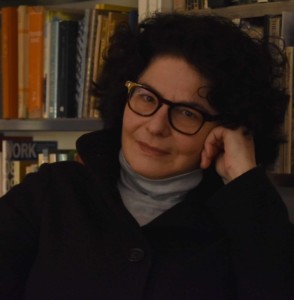
Eve Blau is Adjunct Professor of the History and Theory of Urban Form and Design at the GSD. She is also Director of the Davis Center for Russian and Eurasian Studies (FAS) and Co-Director of the Harvard Mellon Urban Initiative.
Blau teaches courses in the history and theory of urban design and planning including Urban Form: Transition as Condition and Histories + Theories of Urban Interventions. In recent years she has taught a series of research seminars: Berlin as Laboratory; Baku: Oil City; Mapping Cultural Space Across Eurasia.
Her research engages a range of issues in urban and architectural history and theory and the productive intersection between urban spatial form and media. A major focus is on cities and urban environments in the post-socialist world, and with developing critical methods for understanding the complex dynamics of transition in the Region and beyond.
Recent publications include Baku: Oil and Urbanism (2018) and Urban Intermedia: City, Archive, Narrative (2018), an exhibition exploring visual and digital methods for acquiring and producing knowledge about cities.
Blau advises dissertations in the history of cities, regions, landscapes, and architecture across a broad geography that seek to understand the complex dynamics of transformation historically, theoretically, and spatially in the context of rapidly changing sociopolitical, demographic, technological, and environmental conditions.
For more information on Eve Blau’s interests and work, click here. Contact: [email protected]
Diane Davis

Diane Davis is the Charles Dyer Norton Professor of Regional Planning and Urbanism at the GSD. She teaches courses on urbanization and development, urban governance and the politics of planning in the global south, and the history and theory of urban interventions. Trained as a comparative-historical sociologist with a specialized focus on cities, mobility infrastructures, and the politics of territorial development, Davis works primarily on topics related to urbanization in Latin America and other post-colonial or settler societies.
Current areas of research include the governance of risk, conflict cities, and urban sovereignty. Recent publications include Transforming Urban Transport (2019); Cities and Sovereignty: Identity Politics in Urban Spaces (2011) and two special journal issues focused on “Illiberal Governance Arrangements and the Material Foundations of Sovereignty” and “Beyond Dichotomization: Informality and the Transformation of Governance in Cities of the Global North and South.” She is currently working on an historical geography of police impunity in Mexico and its implications for spatial practice and the rule of law.
Davis advises dissertations which explore the politics of the urban built environment, the relationship between territorial development and sustainability, and the role of power, mobilization, and conflict in urban form and function. Her advisees have examined these questions in cities of both the global north and south.
For more information on Davis’ interests and work, see below:
Contact: [email protected]
Edward A. Eigen
 Edward A. Eigen is Senior Lecturer in the History of Landscape and Architecture at the Graduate School of Design. A historian of the long nineteenth century, in the European and Anglo-American contexts, his research and teaching focus on relationships in and between humanistic and scholarly traditions and the natural sciences and allied practices of knowledge production. With a background in art history, a professional training in design, and a doctorate in the history and theory of architecture from MIT, he is at home with and seeks to productively defamiliarize images, texts, and topographies of intricate description.
Edward A. Eigen is Senior Lecturer in the History of Landscape and Architecture at the Graduate School of Design. A historian of the long nineteenth century, in the European and Anglo-American contexts, his research and teaching focus on relationships in and between humanistic and scholarly traditions and the natural sciences and allied practices of knowledge production. With a background in art history, a professional training in design, and a doctorate in the history and theory of architecture from MIT, he is at home with and seeks to productively defamiliarize images, texts, and topographies of intricate description.
His recent book, On Accident: Episodes in Architecture and Landscape (MIT Press), seeks to reclaim and provide forms of interpretability for unfamiliar incidents and artifacts that fall outside the canon. His current monograph project, Beyond the Rose Garden, examines real and emblematic landscapes and architectures associated with the administrations of Presidents Kennedy, Johnson, Nixon, and Ford, including the “grassy knoll,” the Highway Beautification Act, Watergate, and the Bicentennial Time Capsule.
Eigen is seeking to work with doctoral candidates whose research interests include: aspects of the natural and built landscape, especially considered from and within literary, artistic, and historiographic contexts; the history and theory of architecture in the long nineteenth-century; material and cognitive practices of knowledge production in the natural and human sciences.
For more information about Eigen and his research interests, click here. Contact: [email protected]
Ann Forsyth
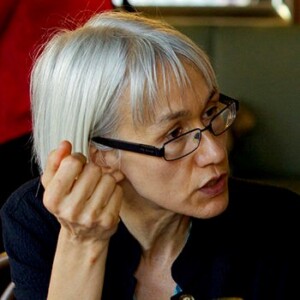 Ann Forsyth is the Ruth and Frank Stanton Professor of Urban Planning at the GSD. She teaches courses in methods and healthy places. Trained in planning and architecture, Forsyth works mainly on the social aspects of physical planning and urban development. The big issue behind her research and practice is how to make more sustainable and healthy cities. Forsyth’s current research focuses on developing healthier places in a suburbanizing world, with emphases on aging and planned communities.
Ann Forsyth is the Ruth and Frank Stanton Professor of Urban Planning at the GSD. She teaches courses in methods and healthy places. Trained in planning and architecture, Forsyth works mainly on the social aspects of physical planning and urban development. The big issue behind her research and practice is how to make more sustainable and healthy cities. Forsyth’s current research focuses on developing healthier places in a suburbanizing world, with emphases on aging and planned communities.
Forsyth advises dissertations addressing health, social, and environmental dimensions of urban planning, design, and development. She is particularly interested in qualitative and mixed methods approaches.
For more information on her interests and work, see below:
Contact: [email protected]
K. Michael Hays
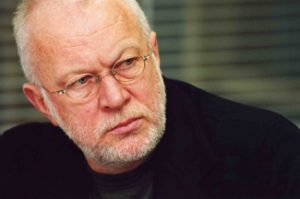 K. Michael Hays is the Eliot Noyes Professor of Architecture Theory at the GSD. He teaches courses and advises doctoral students in the history and theory of architecture, critical theory and modernism, and the legacy of poststructuralism for architecture.
K. Michael Hays is the Eliot Noyes Professor of Architecture Theory at the GSD. He teaches courses and advises doctoral students in the history and theory of architecture, critical theory and modernism, and the legacy of poststructuralism for architecture.
Courses include “Postmodernism, Poststructuralism, and Architecture,” as well as the core series, “Buildings, Texts, and Contexts.” Hays was founding editor of the journal Assemblage and the first Adjunct Curator of Architecture at the Whitney Museum. Notable publications include Modernism and the Posthumanist Subject (1992), Architecture Theory since 1968 (1998), Architecture’s Desire (2009), and, with Andrew Holder, Inscriptions (2022).
For more information about his research interests, click here. Contact: [email protected]
Jerold S. Kayden
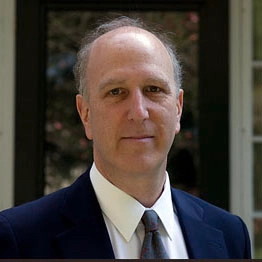 Jerold S. Kayden is the Frank Backus Williams Professor of Urban Planning and Design and the Founding Director of the Master in Real Estate Program at the Graduate School of Design, where he previously served as Co-Chair of the Urban Planning and Design Department.
Jerold S. Kayden is the Frank Backus Williams Professor of Urban Planning and Design and the Founding Director of the Master in Real Estate Program at the Graduate School of Design, where he previously served as Co-Chair of the Urban Planning and Design Department.
As an urban planner and lawyer, his teaching and scholarship focus on land use and environmental law, public-private real estate development, public space, urban disaster resilience, design competitions, and cultural space.
His publications include Privately Owned Public Space: The New York City Experience; Urban Disaster Resilience: New Dimensions from International Practice in the Built Environment; Zoning and the American Dream: Promises Still to Keep, and Landmark Justice: The Influence of William J. Brennan on America’s Communities.
Professor Kayden has been a Guggenheim Fellow. After law school, he served as law clerk to U.S. Court of Appeals for the Second Circuit Judge James L. Oakes and U.S. Supreme Court Justice William J. Brennan, Jr. He has worked with governments, non-governmental organizations, and developers worldwide on land use and real estate issues.
Professor Kayden’s interest areas for PhD candidates mirror the teaching scholarship, and professional practice subjects listed above. For more information about his interests and work, click here. Contact: [email protected]
Ana María León Crespo
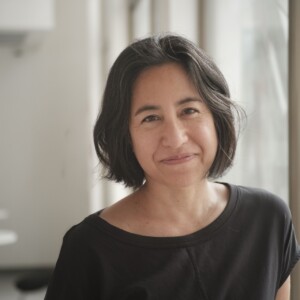 Ana María León is Associate Professor of Architecture at the GSD. Her work traces how spatial practices and transnational networks of power and resistance shape the modernity and coloniality of the Americas. Courses include “Building, Texts, Contexts: Architecture’s Multiple Modernities” and “The Architect as Producer.”
Ana María León is Associate Professor of Architecture at the GSD. Her work traces how spatial practices and transnational networks of power and resistance shape the modernity and coloniality of the Americas. Courses include “Building, Texts, Contexts: Architecture’s Multiple Modernities” and “The Architect as Producer.”
León is trained as an architect and an architectural historian. Her historiographic approach is based on two interrelated premises: that the design of space mediates power, and that subjugated histories complicate more established narratives. She is the author of Modernity for the Masses: Antonio Bonet’s Dreams for Buenos Aires (University of Texas Press, 2021) and A Ruin in Reverse / Bones of the Nation (ARQ, 2021).
She is co-founder of several collaborative groups laboring to broaden the reach of architectural history including Nuestro Norte es el Sur and the Settler Colonial City Project. Her current projects include a book on the spaces of struggle and resistance to the Pinochet regime in 1970s Chile and a collection of essays on the intersection between modern architecture and Indigeneity in the Americas.
León advises dissertations in the history of buildings, landscapes, and objects with special attention to the spatial politics that draw them together and the arguments that put them in conversation with each other. She is invested in research that assembles populations, discourses, and landscapes from the South as a conceptual and political position. For more information on her interests and work, visit her faculty profile, her personal website, or view her publications here. Contact: [email protected]
Ali Malkawi

Ali Malkawi is Director of the Doctor of Design Studies Program and Professor of Architectural Technology at the GSD. Malkawi is an international scholar and expert in building simulation, energy conservation, and sustainability in buildings. He teaches architectural technology and computation and conducts research in the areas of computational simulation, building performance evaluation, and design decision support. He is also the founding director of the Harvard Center for Green Buildings and Cities (CGBC), which was founded in 2014 to transform the building industry through a commitment to design-centric strategy that directly links research outcomes to the development of new processes, systems, and products.
Lead author or coauthor of over 100 scientific papers, Malkawi is also the co-editor of three books: two on the subject of computationally-driven design and simulation, Advanced Building Simulation and Performative Architecture: Beyond Instrumentality, and another entitled Sustainability in Scandinavia: Architectural Design and Planning, which accumulates diverse experiences of practitioners in Norway, Sweden, and Denmark. He serves as a board member and scientific reviewer for several leading journals and conferences and is the associate editor of Building Simulation: An International Journal, distributed by Springer Publishing.
For more information on his interests and work, click here. Contact: [email protected]
John May
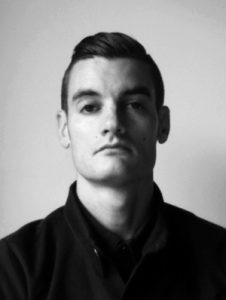
John May is Associate Professor of Architecture at the GSD. His seminar and lecture courses focus on architecture’s relationship with electronic media, environmental theory, and neoliberal urbanism. Recent seminars include “Rules for the Electronic Zoo,” “Environmentalisms: How to Have a Politics?,” and a group research project titled “New Figures of Exodus: Histories and Philosophies of the Designed Present.”
May’s writings aim at an articulation of the technical, economic, and political conditions surrounding the contemporary design fields. His most recent book, Signal. Image. Architecture (Columbia, 2019) contemplates the psychosocial effects of transmissible electronic images, and their consequences for architecture and urbanism. Design Technics: Archaeologies of Architectural Practice (Minnesota, 2019; co-edited with Zeynep Çelik Alexander) explores the philosophical, historical, and political dimensions of contemporary design technologies. His essays have appeared in Log, Perspecta, Praxis, MIT Thresholds, Project, Quaderns, New Geographies, and Harvard Design Magazine, among others.
May previously served as director of the GSD’s Master in Design Studies program (2015-2020) and area head of the History and Philosophy of Design + Media research group (2015-2022). His advising includes previous and ongoing projects on: urban interspecies relationships and acoustic media; the early history of architectural pedagogy in the United States; early-modern scientific representations of space and landforms; “Wet ontologies” and the oceanic imaginary; the role of the concept of precision in architecture and construction; among others.
For more information on his interests and work, view his full faculty profile. Contact: [email protected]
Rachel Meltzer
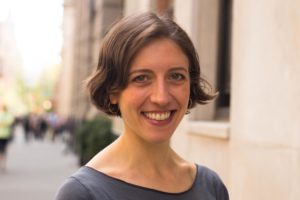 Rachel Meltzer is the Plimpton Associate Professor of Planning and Urban Economics at the Graduate School of Design. Her research is broadly concerned with urban economies and how market and policy forces can shape disparate outcomes across neighborhoods. She focuses on issues related to economic development, housing, land use, and local public finance.
Rachel Meltzer is the Plimpton Associate Professor of Planning and Urban Economics at the Graduate School of Design. Her research is broadly concerned with urban economies and how market and policy forces can shape disparate outcomes across neighborhoods. She focuses on issues related to economic development, housing, land use, and local public finance.
Dr. Meltzer’s current research explores how economic and institutional “shocks” impact retail and commercial activity and real estate markets in urban neighborhoods. Her work sits at the intersection of urban economics and planning and has been published in top policy, economics and urban planning and urban studies journals.
She has also authored the textbook, Policy Analysis as Problem Solving (Routledge 2018), which provides an interdisciplinary and pragmatic approach to evidence-based decision-making for addressing public problems. Dr. Meltzer earned her doctorate in Public Policy and M.P.A. from the Wagner Graduate School at New York University and a B.A. in Psychology and Mathematics from Dartmouth College.
Dr. Meltzer advises dissertations on urban economies, neighborhood-scale analyses, real estate markets and dynamics, and policy analysis. She specializes in quantitative and quasi-experimental methods and working with big data. For more information on her interests and work, view her full faculty profile, personal website, or her publications. Contact: [email protected]
Erika Naginski
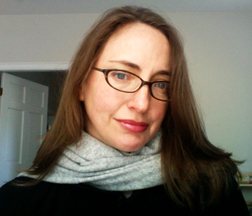
Erika Naginski is the Robert P. Hubbard Professor of Architectural History at the GSD. She teaches lecture courses in the history and theory of architecture from the 17th to the 19th centuries as well as seminars on such themes as “The Spaces of Utopia,” “The Ruin Aesthetic: Episodes in the History of an Architectural Idea,” “Architecture in Early Modern England: Themes and Methods,” and “Visionary Architecture.” Trained as an art and architectural historian, her research interests include Baroque and Enlightenment architecture, early modern aesthetic philosophy, memory and public space, and the history of climate change.
Her publications include books and co-edited volumes such as Polemical Objects (2004), Sculpture and Enlightenment (2009), The Return of Nature (2014) with the architect Preston Scott Cohen, and Paths, Sounds, Ruins: Imagining Architecture in Candelaria (2017) with the architect Jorge Silvetti. Her current book project is a study of the intersections of antiquarianism, history, and architecture in the late 17th and 18th centuries.
Dr. Naginski advises dissertations on architecture, landscape, and the city from the early modern period to the 19th century, which foreground the interconnections between historical dimensions, institutional structures, and the politics of form. Her doctoral students work on a range of topics including:
- The infrastructures and spatial economy of coal in Britain (1750-1900)
- British imperialism and the picturesque origins of the Scenographia Americana
- Architecture and virtuality in Enlightenment France
- Fortification, expertise, and war in Restoration England
- Ephemeral architecture and the decline of Bourbon Absolutism
- Race and 19th-century architectural theories of the primitive, theatre architecture, scenography, and court spectacle.
For more information about her interests and work, click here. Contact: [email protected]
Antoine Picon, Director
![]() Antoine Picon is the G. Ware Travelstead Professor of the History of Architecture and Technology at the GSD and the current director of the PhD in Architecture, Landscape Architecture, and Urban Planning program.
Antoine Picon is the G. Ware Travelstead Professor of the History of Architecture and Technology at the GSD and the current director of the PhD in Architecture, Landscape Architecture, and Urban Planning program.
He teaches courses in the history and theory of architecture, cities, and technology such as “Architecture and Construction: From the Vitruvian Tradition to the Digital” and “Cities, Infrastructure and Politics: From Renaissance to Smart Technologies.”
Trained as an engineer, architect, and historian, Picon works on the relationships between the natural and built environment, technology, and society, from the architectural to the urban and regional scales. Among his recent publications, one can mention Smart Cities: A Spatialized Intelligence (2015) and The Materiality of Architecture (2021). He is currently working on a book on nature, cities, technology, and politics.
Picon advises dissertations in the history of architecture, landscape, and cities, which explore the connections between the development of the built environment, and technological and social issues, including their sometimes utopian dimension. For him, technology constitutes an integral part of culture.
For more information on his interests and work, view his full faculty profile, or his publications here and here. Contact: [email protected]
Carole Voulgaris
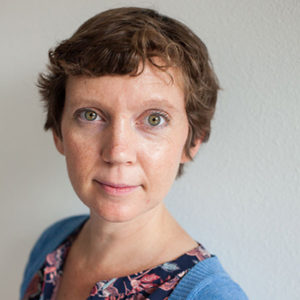 Carole Turley Voulgaris is an assistant professor of urban planning at the Graduate School of Design. Her teaching and scholarship focus on sustainable transportation planning, and she teaches courses including Travel Behavior and Forecasting, Transportation Economics and Finance, Planning for Pedestrians and Cyclists, and Public Transportation. She is particularly interested in the values and goals of transportation planning institutions and the alignment of those goals with planning actions and the criteria used to evaluate the success of those actions. She has published work on the travel patterns of children; the accuracy of metrics used to evaluate transportation projects; disparities in the impacts of transportation planning actions on marginalized populations; and technology adoption and innovation within public agencies. For more information on her past work, view her publications.
Carole Turley Voulgaris is an assistant professor of urban planning at the Graduate School of Design. Her teaching and scholarship focus on sustainable transportation planning, and she teaches courses including Travel Behavior and Forecasting, Transportation Economics and Finance, Planning for Pedestrians and Cyclists, and Public Transportation. She is particularly interested in the values and goals of transportation planning institutions and the alignment of those goals with planning actions and the criteria used to evaluate the success of those actions. She has published work on the travel patterns of children; the accuracy of metrics used to evaluate transportation projects; disparities in the impacts of transportation planning actions on marginalized populations; and technology adoption and innovation within public agencies. For more information on her past work, view her publications.
Dr. Voulgaris advises dissertations that apply econometric methods, qualitative methods, or both to questions related to travel behavior, accessibility, transportation project evaluation, and transportation planning institutions.
Contact: [email protected]
Sarah Whiting
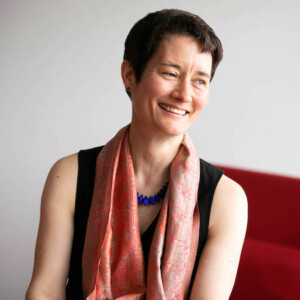
Sarah Whiting has been Dean and Josep Lluís Sert Professor of Architecture at the Harvard University Graduate School of Design since 2019. She is also a design principal and co-founder of WW Architecture, based in Cambridge, and served as the Dean of Rice University’s School of Architecture from 2010 to 2019.
Whiting’s research and writing is broadly interdisciplinary, with the built environment at its core. An expert in architectural theory and urbanism, she has particular interests in modern and contemporary architecture’s relationship with politics, economics, and society and how the built environment shapes the nature of public life.
Whiting advises dissertations in the history and theory of urban form, architecture, and the politics of space. For more information on her interests and work, click here. Contact: [email protected]
Other Associated Faculty
Many of our PhD students work with, and have as dissertation committee members, other faculty members from within and outside the GSD. Some of whom include, but are not limited to:
- Giuliana Bruno, Emmet Blakeney Gleason Professor of Visual and Environmental Studies, Faculty of Arts and Sciences, and GSD Faculty Affiliate
- Joyce Chaplin, James Duncan Phillips Professor of Early American History
- Peter Galison, Joseph Pellegrino University Professor; Faculty Director, Collection of Historical Scientific Instruments
- Sheila Jasanoff, Pforzheimer Professor of Science and Technology Studies at the Harvard Kennedy School.
- David Joselit, Arthur Kingsley Porter Professor of Art, Film, and Visual Studies Chair, Department of Art, Film, and Visual Studies (AFVS)